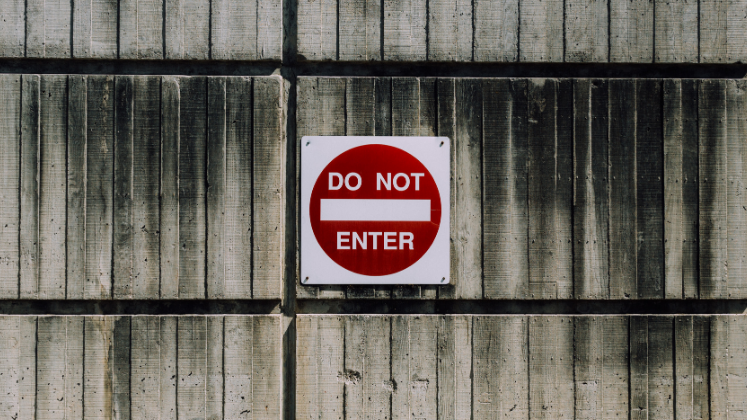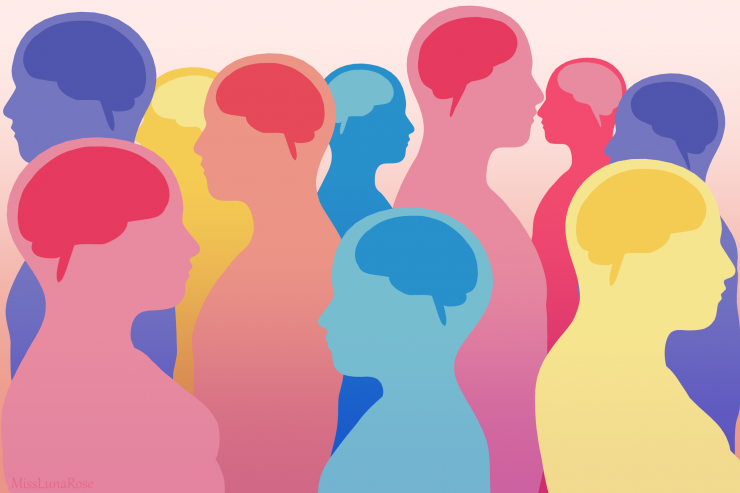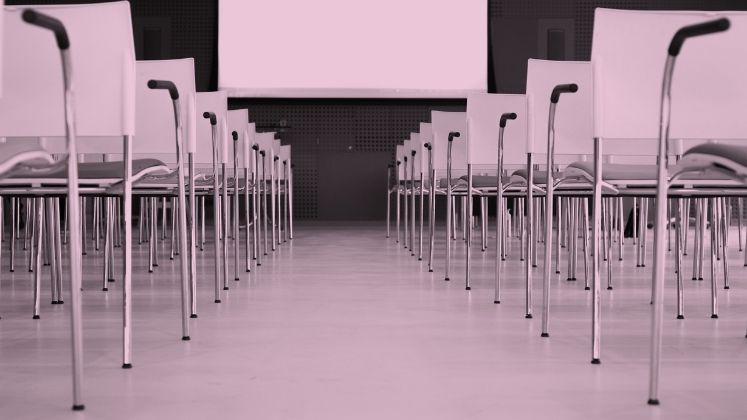Prior to the COVID-19 pandemic a significant and influential body of academic research had begun to take shape around the experience of ableism within the academy. In this post, Nicole Brown reflects on how the pandemic has made this work more relevant than ever and the opportunity it presents for individuals and institutions to learn and face the complexities of genuine inclusion in higher education.
In an LSE Impact blogpost from last year, entitled “The Covid-safe University is an opportunity to end the default ableism of academia” my esteemed colleagues Stuart Reed, Anne Parfitt and Tanvir Bush outlined how we should use the coronavirus pandemic as an opportunity to learn and to make academia more inclusive for the long-term. I would like to add to this conversation by making explicit the learnings we should take from our joint, and indeed global experience.
A lot has been written about disabilities, chronic illness and/or neurodivergence in higher education. Often, this has focused on undergraduate students’ experiences. More recently, however, research into the experience of ableism amongst postgraduate students – taught and research – as well as amongst academic staff has gained significant traction. To mention just a few significant recent works: Jo Sullivan highlights how deeply embedded ableism is in the structures of higher education. Elisabeth Griffiths writes about how disability in academia remains hidden for fear of stigma and the perception of not being able to “keep up”. Wendy Merchant et al. outline how institutions and individuals may proactively counteract experiences of ableism in higher education. And, Kay Inckle focuses on the enormous effort required of a disabled individual to navigate adjustments in the academic workplace.
For many there was a shared experience at the beginning of the COVID-19 pandemic that led to a collective outcry over the newly imposed limitations on people’s lives. Yet, ironically, many amongst the disabled, chronically ill and/or neurodivergent community thrived.
These are just a few examples of what was a hugely exciting development, which led to some significant – small – steps in the right direction. Then came the COVID-19 pandemic, and with it came the rules around distancing, hand-washing and mask-wearing and restrictions to our social lives and leisure activities. Most of the population felt significantly impacted and struggled to accept this “new normal”. Naturally, not every person has the same experience of ability and disability, and not even a disabled person has the same experience at all times and in all situations. This is, as Deegan explains, the nature of disability, being experienced as a fluctuation between normal and “not-so-normal” states of being. For many there was a shared experience at the beginning of the COVID-19 pandemic that led to a collective outcry over the newly imposed limitations on people’s lives. Yet, ironically, many amongst the disabled, chronically ill and/or neurodivergent community thrived.
People with disabilities, chronic illnesses and/or neurodivergences have had life-long experience of their realities and truths being underestimated, indeed negated with statements like “it’s in your mind” or “I’m tired, too”. They have had life-long experience of balancing external pressures of conforming with expectations against internal forces of maintaining health and wellbeing. They have had life-long experience of “socialising” virtually and remotely, which in their case is in a bid to maintain energy-levels high enough to continue to function and to avoid additional illnesses, as for some a simple cough or cold may aggravate other conditions. A snapshot of these experiences were poignantly highlighted in two twitter threads published in March 2020 and a few weeks later in April 2020.
For me, there are two learning points to take away from these Covid19 reflections on twitter:
- Ableds see the spoonie lifestyle as a crisis.[1]
- Spoonies are the strongest people, and their demands for adjustment and support are not so unreasonable.
I am in absolute agreement with all disability, chronic illness and neurodivergence activists, advocates and allies that more needs to be done. Structural issues need to be considered and obstacles removed. Yes, often there are no satisfying solutions possible because people’s needs are often conflicting. For example, people with issues around sensory overload may want cameras to be switched off in a conference call, whereas people with hearing impairments may want them on so they can lip-read. So yes, there is no simple solution. However, what COVID-19 has taught us – or at least should have – is that we cannot know what it feels like to be in someone else’s shoes, to feel what others feel, to experience what others experience, but that we should listen carefully and empathetically to what they do tell us about their lives, rather than dismiss their concerns, queries and attempts to ask for help and reasonable adjustment as an inconvenience. In 2020, in the conclusion to my book, Lived Experiences of Ableism in Academia, I wrote:
“I am truly hopeful and entirely optimistic. … I am hopeful and optimistic that once this crisis is over, as a society we will not return to expectations around ways of working that were commonplace before COVID-19. … Instead, the disabled and able-bodied, chronically ill and healthy, neurodivergent and neurotypical will all work alongside one another with the heightened sense of community and empathy that the contributors to this edited book have been asking for. This is my disability imaginary of the future.”
I still hold on to that optimism and hopefulness, though perhaps more sobered. At the time of writing that conclusion it was still early days in the pandemic. I was able to see the massive improvements the technological development brought to the lives of disabled, chronically ill and/or neurodivergent academics. Twenty months on the political, economic and societal push towards “normality” and calls to “return to offices” become increasingly louder. Already, despite the fact that we are still in the pandemic, we are seeing conferences and meetings being organised as in-person events only. With presenteeism taking hold once again, I worry that the many changes for the better become unravelled and undone. As individuals and institutions, we need to hold on to the positive developments and actively and proactively make sure that we learn from what COVID-19 has taught us.
[1] A spoonie is a person with a chronic condition that is mostly characterised by fluctuating symptoms and severity. The term goes back to the chronic illness blogger Christine Miserandino who used an analogy with spoons representing energy levels to explain to her friend what it feels like to have such a fluctuating condition.
Note: This article gives the views of the authors, and not the position of the LSE Impact Blog, nor of the London School of Economics. Please review our comments policy if you have any concerns on posting a comment below.
Image Credit: Dustin Humes, via Unsplash.









1 Comments